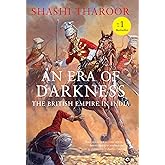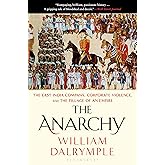
Enjoy fast, free delivery, exclusive deals, and award-winning movies & TV shows with Prime
Try Prime
and start saving today with fast, free delivery
Amazon Prime includes:
Fast, FREE Delivery is available to Prime members. To join, select "Try Amazon Prime and start saving today with Fast, FREE Delivery" below the Add to Cart button.
Amazon Prime members enjoy:- Cardmembers earn 5% Back at Amazon.com with a Prime Credit Card.
- Unlimited Free Two-Day Delivery
- Streaming of thousands of movies and TV shows with limited ads on Prime Video.
- A Kindle book to borrow for free each month - with no due dates
- Listen to over 2 million songs and hundreds of playlists
- Unlimited photo storage with anywhere access
Important: Your credit card will NOT be charged when you start your free trial or if you cancel during the trial period. If you're happy with Amazon Prime, do nothing. At the end of the free trial, your membership will automatically upgrade to a monthly membership.

Download the free Kindle app and start reading Kindle books instantly on your smartphone, tablet, or computer - no Kindle device required.
Read instantly on your browser with Kindle for Web.
Using your mobile phone camera - scan the code below and download the Kindle app.

OK
 Audible sample Sample
Audible sample Sample 


Inglorious Empire: What the British Did to India Audio CD – Unabridged, March 1, 2021
Purchase options and add-ons
British imperialism justified itself as enlightened despotism for the benefit of the governed, but Shashi Tharoor takes on and demolishes this position, demonstrating how every supposed imperial "gift"—from the railways to the rule of law—was designed in Britain's interests alone. He goes on to show how Britain's Industrial Revolution was founded on India's deindustrialization and the destruction of its textile industry. In this bold and incisive reassessment of colonialism, Tharoor exposes to devastating effect the inglorious reality of Britain's stained Indian legacy.
- Print length1 pages
- LanguageEnglish
- PublisherTantor and Blackstone Publishing
- Publication dateMarch 1, 2021
- Dimensions5.2 x 5.7 inches
- ISBN-13979-8200395941
The Amazon Book Review
Book recommendations, author interviews, editors' picks, and more. Read it now.
Similar items that may deliver to you quickly
Editorial Reviews
About the Author
Shashi Tharoor served for twenty-nine years at the UN, culminating as Under-Secretary-General. He is a Congress MP in India and an award-winning author. Tharoor has a PhD from the Fletcher School, and was named by the World Economic Forum in Davos in 1998 as a Global Leader of Tomorrow.
Product details
- ASIN : B08Z88S1V4
- Publisher : Tantor and Blackstone Publishing; Unabridged edition (March 1, 2021)
- Language : English
- Audio CD : 1 pages
- ISBN-13 : 979-8200395941
- Dimensions : 5.2 x 5.7 inches
- Best Sellers Rank: #3,537,470 in Books (See Top 100 in Books)
- #2,171 in Colonialism & Post-Colonialism
- #3,575 in India History
- #5,730 in Asian Politics
- Customer Reviews:
About the author

Discover more of the author’s books, see similar authors, read author blogs and more
Customer reviews
Customer Reviews, including Product Star Ratings help customers to learn more about the product and decide whether it is the right product for them.
To calculate the overall star rating and percentage breakdown by star, we don’t use a simple average. Instead, our system considers things like how recent a review is and if the reviewer bought the item on Amazon. It also analyzed reviews to verify trustworthiness.
Learn more how customers reviews work on Amazon-
Top reviews
Top reviews from the United States
There was a problem filtering reviews right now. Please try again later.
I thought the book, though, paid insufficient attention to how the British were able to occupy a huge and populace country such as India. To a certain extent, I think it was a coincidence or combination of events that happened to occur at the same time. The Mogul dynasty and central government collapsed, and India was invaded by the Persians, just when the British East India Company and the French went to war all over the world, including in India. The author (Shashi Tharoor) also, I think, misjudges the significance and effects of the European Industrial Revolution and the superior European military performance at the time. By the mid- to late 18th century, a European army and navy could defeat a much larger Indian or Asian army or navy. The European colonization or seizure of Africa and Asia occurred because of a huge superiority in military and industrial technology. To this day, if one country possesses a military or technological - industrial advantage over another country, it will use it for it's own benefit. The people of India, China, and Africa found this out.
Another excellent book on this subject is "The Anarchy: The East India Company, Corporate Violence, and the Pillage of an Empire" by Dalrymple (2019).
I'm looking forward for a world in which that would be unnecessary.
I trust Shashi Tharoor's knowledge of imperialism, especially as it relates to India. At the time this book was written, there were not too many books out there critical of British imperialism. In 'Inglorious Empire' not only does Dr. Tharoor criticize the British empire, but also lay out the details of how the British essentially destroyed one of human history's most advanced and prosperous societies.
This book is written with knowledge and depth, but also in an engaging manner. I highly recommend it to anyone wishing to understand why most of the countries colonized by European imperialists became so impoverished in the past few centuries.
A lot of social and economic data is discussed from all perspectives. It was a great read because it is not biased and does not seek to propagate any personal agendas. Tharoor's goal is to find the best possible way to move away from the blame game.
This book is one to pass on to future generations.
Top reviews from other countries
How systematically industries were destroyed, exorbitant taxes were levied and used as the market for the finished goods from Britain. Natives were denied fair competition their industries, arts and cultures were destroyed and Economy decimated. Kohinoor was not the only diamond looted from India read Pitts Diamond and how it helped him buying the parliament seat and helped create the prime minister in UK, William Pitt junior and senior. No wonder no British remained in India after the Independence of India in 1947 like South Africa or Zimbabwe, because they sucked it dry. It is heartening to see India pipped UK to become 5th highest GDP in the world just over 70 years of independence, hope it finds its rightful place soon.
Anything that British did in India was to strengthen their instruments of exploitation like Railway, English Education but if the Indians took this and turned it around to their advantage it is their strength and not some kind of British Contribution. You just have to look at the African countries or for that matter any other former British colony.
While the contributions of even animals are recognized during the world war, the contributions of the Indians are largely ignored by the Britain. Even though, Indians were the first one to take the brunt of the offensive. Winston Churchill who is hailed as hero in the west is no less a tyrant than Heitler. He is responsible for deaths of millions of the poor peasants in the Bengal famine, just to shore up the stocks for world war. He lost all the respect I had for him and its nauseating to see the roads and towns named after him.










